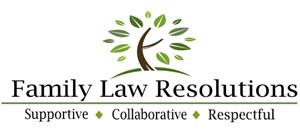Outside Influence

Don’t let bad portrayals of lawyers in movies prevent you from getting the help you need when divorcing
By, Felicia Soleil, Attorney/Mediator
As a divorce mediator and family law attorney, the last thing I usually want to do during my time off is watch divorce-related movies. However, with the popularity of the latest award-winning Netflix offering, A Marriage Story, I decided I needed to conduct some “research” after several clients made comments relating their feelings about their impending divorce to scenes in the movie.
Early in the film, my first impression (as usual with these shows) was anger at the blatant stereotyping of all the legal professionals involved. They include laughable caricatures, from high-priced “pit bull” lawyers, to “overly zen” mediators, to frumpy and judgmental parenting investigators. How does this help people?? They certainly do nothing to console a vulnerable couple who may be thinking of ending their marriage to believe they will be in good hands should they need professional help.
Fortunately, the film redeemed itself with the accurate portrayal of the very realistic emotions experienced by divorcing couples (as played by Scarlett Johansson and Adam Driver) as they navigate their separation, negotiate relocating residences, sharing their son, and relating to family and friends, with a commitment to attempt to work through their transition without causing each other more strife than necessary. This couple firmly expressed a mutual goal, which I hear frequently in my own practice: “We want to do this without getting nasty and without lawyers.” To them, involving lawyers seems to ensure an ugly battle as the legal process of divorce practically invites furthering hurt rather than encouraging healing. In other words, these couples don’t want the divorce process to make things worse than they already are.
As my viewing of A Marriage Story progressed, I was reminded of two other popular “divorce-with-children movies” of decades past, Kramer vs Kramer and Mrs Doubtfire. A universal theme in all three movies is the break up of a marriage against the forces of legal professionals, and an intimidating legal system, while trying to stay together as a family. The story arc appears to be an initial commitment to one another to “do no harm”, followed by lawyers and the legal system (and perhaps well-intentioned friends and family) trying to convince them it should be “every man/woman for themself”. Sound familiar?
Gratefully, these films all conclude with the parties coming back to resurrecting and honoring their wholehearted values and finding a path to a new family structure with a different version of love with which to move forward. What these films also portray well are fathers desperate not to be marginalized as parents, mothers fearing the repercussions of seeking financial and emotional independence from that of their disintegrating marriages, and children experiencing their connections with each parent while feeling the uncertainty, sadness, and hopefulness that each child’s perspective brings to their story. All three of these films are from vastly different decades, yet the emotional path of a family transitioning through divorce has not changed.
Fortunately, what has changed is the progression of options for professional help (despite mass media’s entertaining characterizations to the contrary). You can make a commitment to one another to separate and divorce with grace and dignity AND have the legal help you’ll need to figure out how to handle your house, retirement accounts, and debts, how to consider your incomes for financial support, and how to create a co-parenting schedule that works well for all of you. How do you do this? By doing your research into the styles, training, focus and experiences of the professionals you’ll choose to work with, whether through mediation, collaborative law, or through legal coaching and consulting, and making sure those you hire share your and your spouse’s values of a peaceful and respectful transition. Steer clear of believing entertaining stereotypes and recognize when you need professional assistance, while holding firm to your commitment to one another to “do no harm.”
Felicia Soleil is a family law attorney and mediator located in Gig Harbor. She helps her clients in achieving resolutions that foster both a compassionate ending to their union and a healthy new beginning for them and their families so they can focus on moving on, rather than simply moving out. Felicia can be reached at 253-853-6940. All consultations are strictly confidential.
Published on April 3, 2020
